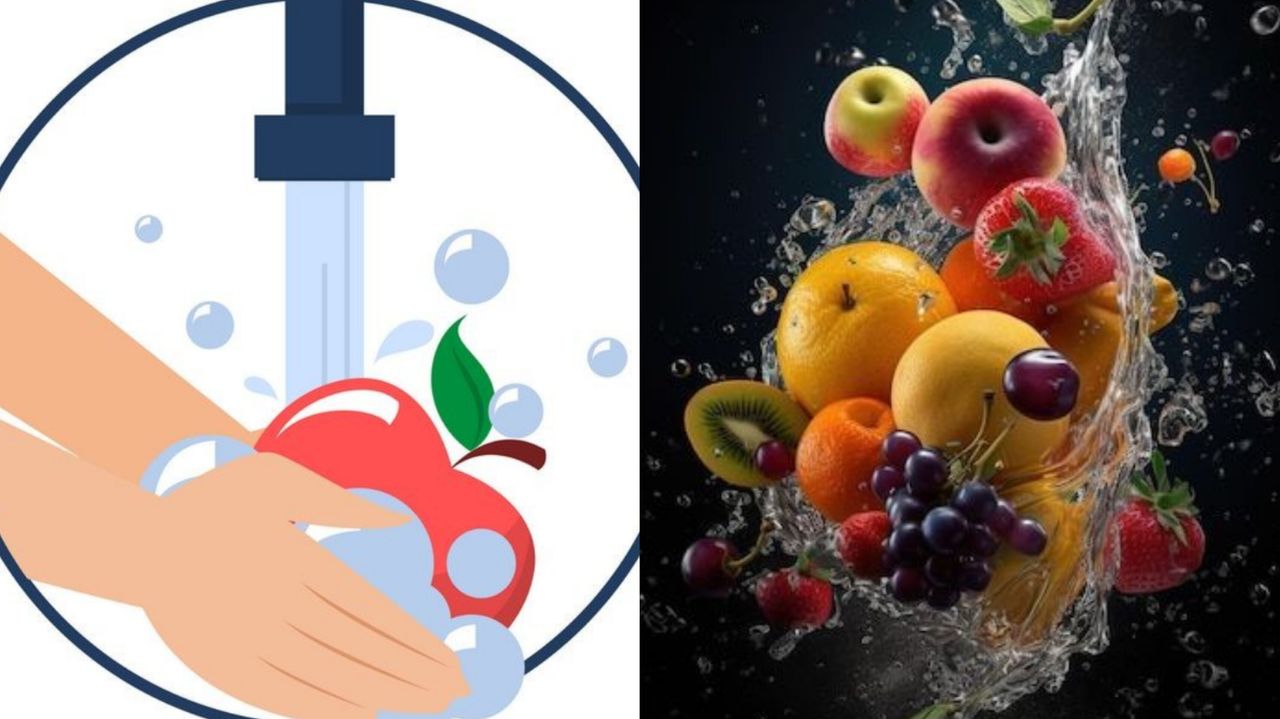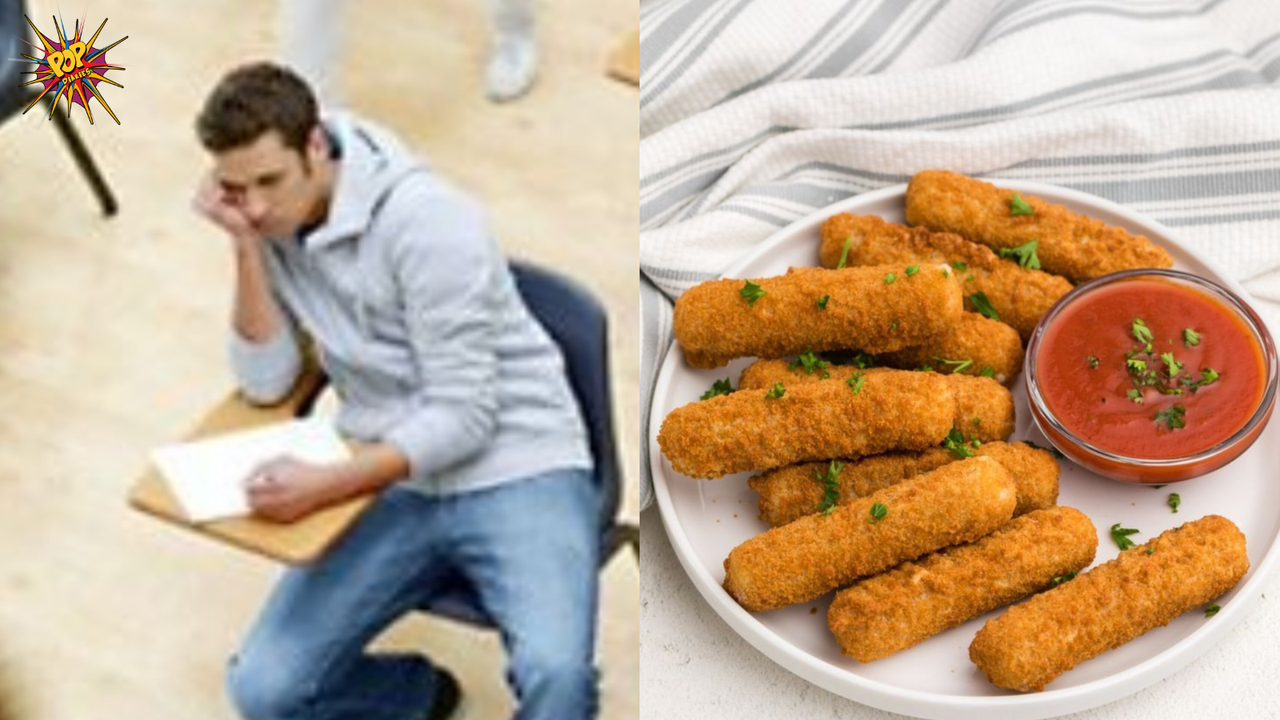CABI scientists have conducted research which reveals that concerns over pesticide residues on fruits and vegetables is the most frequently cited...
Vous n'êtes pas connecté
- English
- Français
- عربي
- Español
- Deutsch
- Português
- русский язык
- Català
- Italiano
- Nederlands, Vlaams
- Norsk
- فارسی
- বাংলা
- اردو
- Azərbaycan dili
- Bahasa Indonesia
- Հայերեն
- Ελληνικά
- Bosanski jezik
- українська мова
- Íslenska
- Türkmen, Түркмен
- Türkçe
- Shqip
- Eesti keel
- magyar
- Қазақ тілі
- Kalaallisut ; kalaallit oqaasii
- Lietuvių kalba
- Latviešu valoda
- македонски јазик
- Монгол
- Bahasa Melayu ; بهاس ملايو
- ဗမာစာ
- Slovenščina
- тоҷикӣ ; toğikī ; تاجیکی
- ไทย
- O'zbek ; Ўзбек ; أۇزبېك
- Tiếng Việt
- ភាសាខ្មែរ
- རྫོང་ཁ
- Soomaaliga ; af Soomaali
 Maroc - POPDIARIES.COM - A La Une - 12/Aug 04:50
Maroc - POPDIARIES.COM - A La Une - 12/Aug 04:50
Why Washing Fruits Alone Won’t Eliminate Pesticides
Washing fruits is a common practice that many people use to ensure they are consuming clean and safe produce. While washing fruits can help remove dirt, bacteria, and some surface residues, it is not always effective in eliminating pesticides. Here’s an in-depth look at why washing alone may not fully remove pesticide residues from fruits: 1. Nature of Pesticides Pesticides are chemicals used to protect crops from pests, diseases, and weeds. They are designed to be persistent and to remain on the produce to ensure effectiveness throughout the growth period. Pesticides can be categorized into different types: - Systemic Pesticides: These are absorbed by the plant and become integrated into its tissues. Washing the surface of such fruits will not remove these pesticides because they are within the fruit itself.- Contact Pesticides: These are applied to the surface of the fruit and can be removed to some extent by washing. However, they may still leave residues that are not fully eliminated through washing. 2. Types of Residues Pesticides can leave different types of residues on fruits: Surface Residues: These are present on the outer layer of the fruit and are somewhat removable by washing. Penetrated Residues:Some pesticides can penetrate into the fruit’s skin or peel. These residues are not easily removed by washing, as they are inside the fruit’s tissue 3. Ineffectiveness of Water Alone Using plain water to wash fruits is often insufficient for several reasons: - Chemical Nature: Pesticides are chemical compounds that may not dissolve easily in water. Simple rinsing with water may not effectively break down or wash away these chemicals.- Hydrophobic Pesticides: Some pesticides are hydrophobic (water-repelling), which makes them difficult to remove with water alone. 4. Washing Techniques and Tools Different washing techniques and tools can influence the effectiveness of pesticide removal: - Running Water: Rinsing fruits under running water is more effective than soaking but may still leave residues, especially if the fruit has been treated with systemic pesticides.- Brushes and Scrubber: Using brushes or scrubbers can help remove surface residues, particularly on fruits with thicker skins or peels. However, these tools may not address residues that have penetrated the fruit.- Specialized Washes: Commercial fruit and vegetable washes are formulated to break down pesticide residues more effectively than water alone. They can help reduce residues, but they still may not remove all types of pesticides, especially systemic ones. 5. Food Processing and Handling The way fruits are processed and handled can also affect pesticide residues: - Peeling: Peeling fruits can remove residues that are on or just below the surface. However, this might not be feasible for all fruits and may lead to loss of nutrients.- Cooking: Cooking fruits, when applicable, can reduce pesticide residues. However, this is not always a practical solution and may affect the texture and taste of the fruit. 6. Regulations and Testing Government regulations and testing standards for pesticide residues help ensure that produce is safe for consumption: - Regulatory Limits: Governments set maximum residue limits (MRLs) for pesticides to ensure they are within safe levels. Produce is tested to ensure compliance with these standards.- Washing Guidance: Guidelines are provided for consumers on how to wash fruits and vegetables effectively, but they often emphasize that washing alone cannot guarantee complete removal of pesticides. 7. Best Practices for Minimizing Exposure To minimize pesticide exposure, consider these practices: - Buying Organic: Organic fruits and vegetables are grown without synthetic pesticides, which can reduce exposure to pesticide residues.- Peeling and Cooking: When practical, peeling fruits and cooking can help reduce pesticide residues.- Diversifying Diet: Eating a variety of fruits and vegetables can help minimize the risk of exposure to any single pesticide. CONCLUSION - while washing fruits is an important step in cleaning produce, it is not a comprehensive solution for removing all pesticide residues. The nature of pesticides, their penetration into the fruit, and the limitations of washing methods mean that additional practices, such as peeling, cooking, or choosing organic produce, may be necessary to further reduce pesticide exposure. READ MORE - The Berlin Olympics Controversy: Hitler’s Neglect of Jesse Owens
Articles similaires
The Hidden Dangers of Consuming Frozen Foods
Frozen foods have become a staple in the modern diet, providing convenience and a long shelf life that caters to our fast-paced lifestyles. However,...
Mary Trump bashes media outlets for 'sane-washing' Donald's 'delusional' rants
During an appearance on MSNBC on Saturday morning, Donald Trump's psychologist niece fumed at media outlets that have been accused of "sane-washing"...
We’re Closer Than Ever To Solving Mystery Of Deadly Virus
Around 58 million people suffer from chronic inflammation caused by the hepatitis C virus, and 300,000 people die from the disease every year. So...
Do you really need to wash your fruit and vegetables?
Some people are washing their vegetables in the dishwasher. But how far should we go in cleaning our produce?
Bald Eagles Face Highest Lead Risk Of New York Deer Scavengers
A new study from Cornell University and the New York State Department of Environmental Conservation (DEC) shows bald eagles are the most...
DID YOU KNOW? Humans Lose Approximately 600,000 Skin Cells Every Hour
The human skin, the body's largest organ, is continuously in a state of renewal and regeneration. Remarkably, every hour, humans shed approximately...
Impact Of Climate Change On Agriculture Suggests Even Greater Challenges To Environment, Global Food Supply And Public Health
A sweeping global research review of the links between climate and agriculture reveals the likelihood of an emergent feedback loop whereby, as...
What causes food cravings? And what can be done about them?
Many of us try to eat more fruits and vegetables and less ultra-processed food. But why is sticking to your goals so hard? High-fat, sugar-rich and...
The Amish: A Control Group For Technofeudalism – OpEd
Life in the United States has changed drastically in the last several decades. Technology, pharmaceutical and medical interventions, dietary shifts,...
Les derniers communiqués
-
Aucun élément



